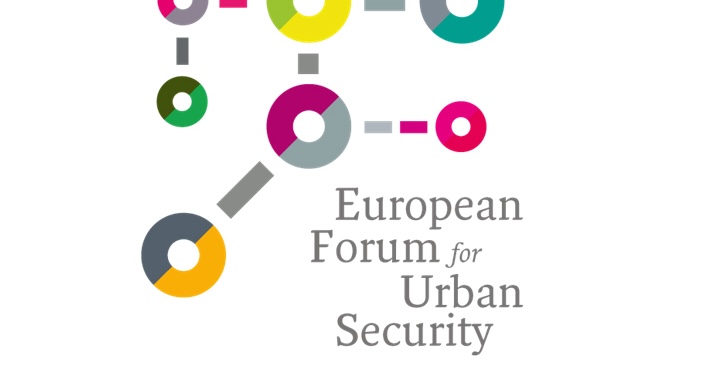April 2022 – Playing a vital role in worldwide trade – 90% of the goods traded in the world is shipped by sea¹ – ports in Europe and around the globe have become huge, ultra-efficient logistics hubs, which are used by organised crime to ship drugs from producing countries to consumer markets, in particular in Europe. One avenue to curb such trafficking, which is increasing year on year, is to strengthen partnerships between the public and the private sectors.
Such an approach is part of the strategy developed by the Port of Rotterdam, which Marty Stanicic, Senior policy advisor at the Department of Public Safety of the City of Rotterdam, presented in a web conference held by Efus’ working group on organised crime, on 20 April. The event was the third of a series of web conferences organised throughout the year by this working group, which is led by Efus member cities Amsterdam and Rotterdam.
The vulnerable nature of ports
Apart from the sheer volume of goods they handle on a 24/7 basis, the fact that ports are managed by both public entities (port and municipal/regional authorities) and private companies has made them particularly efficient, but also vulnerable. Over time, organised crime groups have established footholds in these ports, using intimidation and corruption to continue to grow their networks and increase the amount of illicit goods being transported to Europe. Indeed, the United Nations Office on Drugs and Crime (UNODC) notes in a 2021 report² that, “the epicentre of the cocaine market in Europe has shifted northwards. The increased use of containerized shipments relying on the high-volume ports of Antwerp, Rotterdam and Hamburg has consolidated the role of the Netherlands as a staging point and led to continental Europe’s North Sea coast overtaking the Iberian peninsula as the primary point of entry for cocaine reaching Europe.” As such, between 2006 and 2021, the City of Rotterdam saw the quantity of cocaine intercepted in the port increase from 13 to 70 tonnes.
With increased trafficking comes increased violence, often impacting the local communities surrounding ports and involving residents. The City of Rotterdam highlighted that local youngsters are now at greater risk of being recruited by criminal groups because they can make large amounts of money dealing drugs, thus creating a dangerous criminal subculture. “It is hard to find alternatives,” admitted Ms Stanicic.
From Rotterdam in the Netherlands to Le Havre in France and Piraeus in Greece, to name three Efus member cities, European ports are becoming increasingly impacted by the phenomenon of organised crime, necessitating local solutions and cooperation that involve a variety of actors.
Developing meaningful partnerships to combat organised crime
While the shared oversight between public and private authorities in ports can lead to vulnerability, it also presents an important opportunity to develop meaningful partnerships to combat organised crime. Representing Efus, Tatiana Morales, Programme Manager, emphasised that “it is important to adopt a multi-disciplinary and multi stakeholder approach to be able to address the thin line between legitimate, illicit and illegal that characterises ports in Europe and around the world.” But, what do effective public-private partnerships look like? Ms Stanicic stressed the importance of a partnership that works both “upstream and downstream,” to “police and prevent the business model” of organised crime groups.
Having identified that private actors are essential to a successful prevention strategy, largely due to their vested economic interests, the City of Rotterdam has developed several public-private partnerships in the port. Based on research conducted in 2019 by Erasmus University Rotterdam, the City drafted an action plan together with public and private actors such as shipping companies, Deltalinqs, customs agencies, harbour police, the Prosecutor’s office and the municipality to “explore the opportunities for public and private partnership.”
Training port workers
One example is the ‘training container,’ which seeks to raise awareness and build resilience against potential attempts by criminal organisations to recruit and corrupt port workers. So far, 4,000 employees have participated in the training, which uses virtual role-play to imitate a scenario in which a criminal is trying to recruit an employee.
The City of Rotterdam is committed to continue developing public-private partnerships, and is planning future actions based on prevention among recreational drug users and an approach targeting youth.
Key Takeaways
Concluding the session, Tatiana Morales, Efus Programme Manager, identified three takeaways:
- Political buy-in is important for efficient public-private partnerships to combat organised crime in European ports;
- Successful policing and prevention efforts must disrupt the business model of criminal groups;
- An upstream and downstream approach is necessary for a successful strategy.
> The working group on organised crime’s next web conference will be held on 15 June and will be dedicated to modern slavery and human trafficking. (Register for free here)
> Follow the activities of the working group on organised crime on Efus Network
¹ Source: Organisation for Economic Co-operation and Development (OECD)




